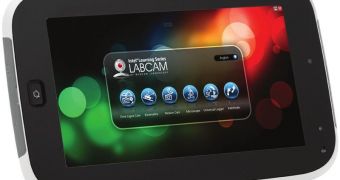With each new technological advancement, a new business avenue opens, and it just so happens that ultralight laptops and tablets earned IT companies a new potential sales outlet: the education segment.
Technology has been used in schools, colleges and research institutes ever since its infancy, but only to a certain extent.
Until a few years ago, there was nothing truly capable of replacing study books and notebooks.
As such, although it existed, the market for educational devices and software was not particularly huge, not in the US and not in any other part of the world either.
This has now changed. Laptops and tablets have become so thin and light, yet still powerful, that they can make those schoolbags much lighter and locker rooms less stuffed.
Intel's Classmate PC is one example of an education-centric hardware/software endeavor, although the Studybook tablet is more recent.
Nevertheless, it bears mentioning the Classmate PC because it arguably marked the start of the competition.
Lenovo and Samsung used to cooperate with Intel on that project, but they have since moved on to devices that seek the same customers as it.
Lenovo is doing particularly well in China, although not well enough to prevent Intel from scoring the Chinese government's 125 project (one million Studybook orders this year, 2012, with more to follow).
Samsung is trying to promote the Learning Hub, while Shuttle, Asustek and ViewSonic are doing their best to get Taiwanese schools on board (shuttle managed deals with elementary schools, ASUS got some high-schools, etc.).
According to Digitimes, Japan's Sharp will show its hand at some point in the near future as well.
All in all, IT players are head over heels to secure as many orders as possible out of these first several millions (the figure is estimated at 10 million, a decent number for the initial generation).

 14 DAY TRIAL //
14 DAY TRIAL //